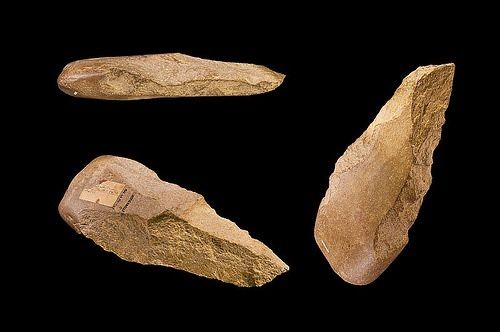Post by UKarchaeology on Nov 27, 2015 14:39:31 GMT

Acheulean chert biface (between 300,000 and 500,000 BP) discovered at Cintegabelle, Haute-Garonne, France. Didier Descouens, Wikimedia Commons
UNIVERSITY OF EXETER— new study from the University of Exeter has found that teaching is not essential for people to learn to make effective tools. The results counter established views about how human tools and technologies come to improve from generation to generation and point to an explanation for the extraordinary success of humans as a species. The study reveals that although teaching is useful, it is not essential for cultural progress because people can use reasoning and reverse engineering of existing items to work out how to make tools.
The capacity to improve the efficacy of tools and technologies from generation to generation, known as cumulative culture, is unique to humans and has driven our ecological success. It has enabled us to inhabit the coldest and most remote regions on Earth and even have a permanent base in space. The way in which our cumulative culture has boomed compared to other species however remains a mystery.
It had long been thought that the human capacity for cumulative culture was down to special methods of learning from others - such as teaching and imitation - that enable information to be transmitted with high fidelity.
To test this idea, the researchers recreated conditions encountered during human evolution by asking groups of people to build rice baskets from everyday materials. Some people made baskets alone, while others worked were in 'transmission chain' groups, where each group member could learn from the previous person in the chain either by imitating their actions, receiving teaching or simply examining the baskets made by previous participants.
Teaching produced the most robust baskets but after six attempts all groups showed incremental improvements in the amount of rice their baskets could carry.
Full story: popular-archaeology.com/issue/fall-2015/article/rice-basket-study-rethinks-roots-of-human-culture
